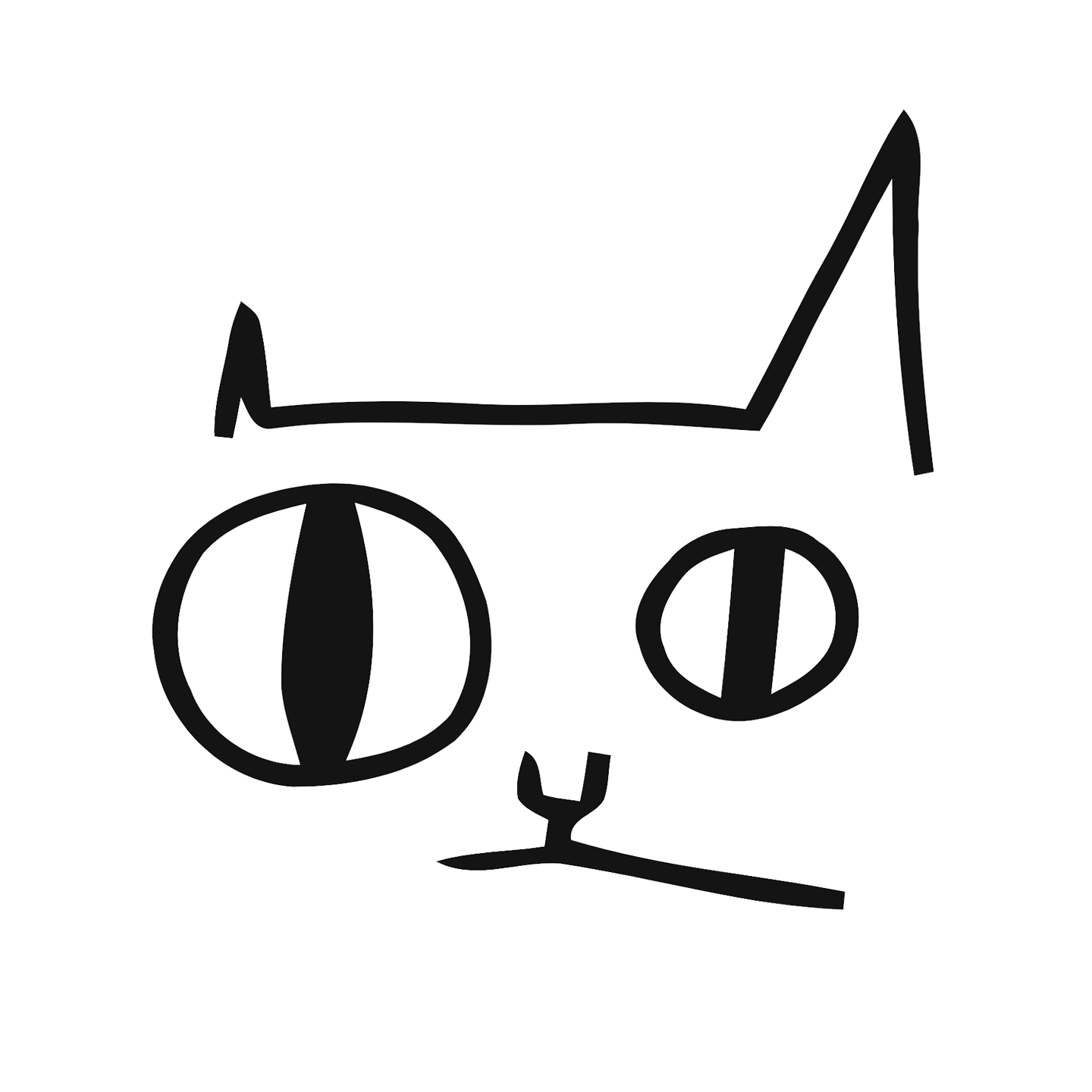I know at this point a lot of it is related to money, but there was a transitional time that led to this point that I’m still confused by.
What details changed about online spaces that made many folks more comfortable sharing so much under their real names between the “Be careful!” times to where we are now?
I think it all started with Zuck wanting to turn Facebook profiles into the “Internet’s Driving License” or some shit about ten years ago: https://www.technologyreview.com/2011/01/05/197776/facebook-wants-to-supply-your-internet-drivers-license/
Can confirm. Before FB, almost nobody told their real name online. Nowadays you can easily find out who is a racist and who believes in conspiracy theories just by looking at what they post. Usually there’s also their real name and face attached to the post so that you can be sure who you are talking about.
How did this happen? FB made it normal and almost obligatory.
Why did it happen? So that FB could make more money. Simple monkey brain people like to socialize and share stuff with everyone, and FB is simply exploiting that vulnerability.
I mostly avoided it so my memory may be off here, but weren’t there still a fair number of folks that posted to MySpace using parts of their real name and, imo slightly worse (in terms of privacy), using photos of themselves as profile pics? Real names are one thing but photos of yourself are just a dead giveaway.
Neither is very useful until you can correlate it with something else. Like, it takes a lot more effort to find someone in meatspace than in a database. Though, the number of databases with your face in them is a number that goes up faster every year.
That’s true, although as I recall there was often enough additional info even back then that someone determined enough could become a concern.
You aren’t wrong. There were also plenty of software-related mailing lists back in the day where folks used their real names regularly. And even if someone did go by a handle, their real name was often known anyway.
Yeah. and there were a lot of tech type folk that had a blog on domains that required ‘real names’ and more, that was quite often public.
Can confirm. Before FB, almost nobody told their real name online. Nowadays you can easily find out who is a racist and who believes in conspiracy theories just by looking at what they post.
And more importantly, if you post something the racist conspiracy theorists don’t like, they know your real name and what you look like. So it makes anyone who doesn’t like unwanted attention from violent lunatics keep quiet, thereby emboldening the violent lunatics.
Oh, rats! You’re right. Didn’t think of that at first.
However, that thing is’t too different from the “mainstream” vs. “the others” situation we’ve had for millennia. Previously, it wasn’t acceptable to let your neighbors know you don’t conform to the generally accepted sexual norms or that your gender identity doesn’t match your biological gender. Not too long ago in Germany you couldn’t publicly support people from different ethnic backgrounds. There was even a period of time when it was believed that women don’t even have a soul. Arguing against that would have labeled you as “one of them” as opposed being an outstanding member of the “mainstream”. It’s just that whatever “mainstream” happens to mean seems to change from place to place and decade to decade.
The current era of diversity and acceptance is truly exceptional when you look at the big picture. Interestingly, using your name and your face in online conversations seems to bring ups back to to age of self-censorship. If your reputation is on the line, you better try to blend into the mainstream, even in online conversations.
Even if you’re entirely within the mainstream, you don’t want to risk upsetting some dangerous bigot. Or worse, a dangerous bigot with a following.
Simple monkey brain people like to socialize
I got told off on kbin for saying 80% of the world’s population are idiots… and then I realized who I was talking to.
All humans have this vulnerability, and it’s part of the human experience. We think of ourselves as highly advanced, but in reality, we aren’t that different from creatures we consider inferior.
I actually think it’s somewhat of a human trait… the need to brag and show off yourself. Some people (most) have it, some don’t. I am really interested at what an IQ test would show about those that post their lives on social media, or do influencer things, whatever. And do the same one on people thay use social media like Reddit or Lemmy. I think the results would favor the ones that use link agregators. But, as I said, this is only a theory I have, it’s not proven or anything, but I would like to actually know. If the results are more or less equal, than that would mean that it’s just a human trait and nothing more… which would surprise me, but you can’t argue with science.
I am really interested at what an IQ test would show about those that post their lives on social media, or do influencer things, whatever.
You may already be aware of this, but in case not, IQ isn’t a necessarily a great way to evaluate intelligence.
Facebook. Simple as.
Definitely Facebook’s policy of demanding real world names and crushing down on anonymity and pseudonyms, around 2014: https://www.protocol.com/policy/anonymity-real-names-jeff-kosseff#toggle-gdpr
EYY I remember when they did that. That’s when I quit cold Turkey
I’ve been the weird one where I refused to make a real Facebook account and would make a throwaway with fake names when I’d need it for classes. What would prompt the creation of another throwaway would be when Facebook would lock my account and demand I send in ID or picture verification.
Yep, most definitely. They were the first.
MySpace I think
Right around the time “don’t get into cars with strangers” and “don’t meet people from the internet” changed to “invite a stranger from the internet to your home and get into their car”.
We realized that the internet wasn’t quite as scary as daytime talk show hosts were making it out to be, and got comfortable with oversharing. People also realized you could make a living and maintain a professional presence on the internet, and that’s not quite as easy to do if you’re going by Xx_vIrGiNsLaYeRz_xX. I think eventually Facebook was the one to normalize it for everybody, but we were definitely pushing that way for a little while, anyway.
It happened when all the non-techy people joined social media.
When some sites coughquoracough started disallowing posting unless you did it under your irl name.
Hi, it’s me, Noneo Fyourbusiness
Didn’t that site also end up banning a native american man because he had an unusual name and facebook thought it was fake?
Even though I am giving up privacy by having my real name online, I just realized that I do not matter to anyone. Out of 7 Billion people I am insignificant, so the chances of malicious activity towards me is incredibly low. For me there is a comforting feeling of being able to communicate as myself on the internet instead of needing an alias to hide behind for protection. Plus, if my full name is googled then the only information that comes up is a drug crime lord in Britain since we share a very similar name; that has been a great mask to hide sensitive information.
Here’s to your drug crime lord with a similar name, always gotta have a little appreciation for someone else with a similar name giving you unintended cover 😅
Very interesting question. As an Italian (specifying this because it probably changes what and when things happened), I remember this transition started to happen in 2010 mainly because of Facebook.
It’s difficult to say why we decided to go with real names on that platform when there were already other similar ones (netlog was super popular here), where most people were mostly semi-anonimous (real pictures, fake names). I totally agree with another comment which said we started to realize internet was not that dangerous or bad, which probably made this happen, combined with the fact that Facebook explicitly asks for your real name.
Back then, I feel there was also much less attention to privacy on the internet (or maybe it’s just because I was a teenager), and it felt super exciting to engage with every new platform or website.That’s pretty much it everywhere. As soon as Facebook started “requiring” a real name, it soon became the norm rather than the taboo.
It took me a long time just to even do any online shopping because I would have to give my name, address and CC info out and I didn’t know who would have access to that info.
My parents would preach something fierce about the dangers of even interacting with strangers online (even just having a generic “how are you” back and forth). In my 20s, I started playing Tibia and really enjoyed the fact that I could interact with people from around the world. I learned plenty of things that I simply didn’t learn in school. When my folks learned I was talking to people I didn’t know, they were appalled. I hate to think how they would have reacted to the knowledge that I shared my first name with some of those people (it’s a veeeeery common name where I’m from).
Then my mom got a Twitter account. Then joined group DMs with like-minded people. Then she started giving out her first name, then her cell number. Then she shared our address. I’m still salty. Luckily nothing bad has ever come of it. The group seems like they’re wonderful people and my mom is able to turn to them when she’s not feeling the best and vice versa.
I’m not sure what you’re referring to, but for what it’s worth, when I got online in the 90s, I shared as little as possible (it was under my email on Usenet, mostly). Since then, I’ve used different aliases on each and every service, often different emails as well and have never shared anything personal. The very idea seems ludicrous to me.
I know a lot of people do it. I honestly have absolutely no idea why.
But then I never could understand why people took selfies either, so maybe it’s just me.
deleted by creator
r u me
i use a fake first name online and all. was big into mmos and had many friends in that time. i ain’t sharing my real information
I’ve always probably overshared about my life online and you could probably figure out who I am with enough detective work, but I don’t think I’ve ever associated my name with anything on social media except Facebook, where everyone I communicate with already knows me on at least some personal level. But I agree, it seems like a lot more people are comfortable with exposing who they are online. I go to a public fan forum where people are regularly showing full face photos of themselves in T-shirts for the fandom and such. It floors me. Anyone can find that in a Google search. It isn’t private at all.
Because no one will ever believe you.
I believe you’re you Ms. Robbie.
Remember to support the strike. Some of these people would probably really want the support right now.
I guess it’s fair that you’re not hyping your big movie with the strike going on… that said, I’m tired of you being in everything all the time. Give some other lady a chance!
Not until I get my Oscar!
what strike?
SAG-AFTRA is now on strike. No more TV shows and movies for a while.
deleted by creator
The truth is that this overexposure on the internet hasn’t caused much more harm than before social media. Most people, not all, but a majority have zero bad intentions. So sharing details about yourself to a mass audience is screaming in the void. Nobody cared about your life before it was on the internet, nobody cares now. Social media companies selling your data is for a shitty reason but not an unethical one. They just want to sell you stuff and they are salesmen that know everything about you.
On the other side, people who want to do bad things can and will regardless of details about someone on the internet. Stranger danger is a fallacy and the person who can/might victimize you is someone you already know. Sure, maybe it saves time, but it doesn’t really change victimization. People can stalk someone in real life, can steal their mail, can social engineer the people around their victim, it’s just a bit easier when a lot of it can be done by befriending someone on social media.
vanity > privacy
For me, it came down to contributing to open source projects in a meaningful or professional capacity. Commits and correspondence generally contain identifiable contact information, and if you have a professional website or email address using your real name then it’s only a matter of time before the two worlds collide.
As a result, I stopped using aliases for most things in the early 2000s. For Steam and other gaming platforms, sure, but for social media, it’s just plain old me.















